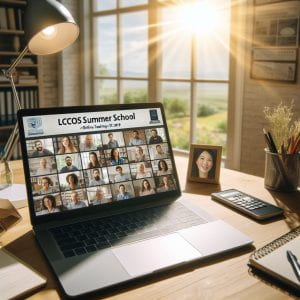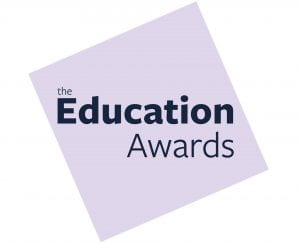Introducing the UCL Copyright Literacy Community and new resources.
By Christina Daouti, on 13 May 2024
UCL Copyright Literacy Community
My LCCOS colleagues understand all too well how copyright considerations shape decisions we make in our roles. In some cases, the answer to a copyright question is straightforward, for example whether using a resource is covered by the terms of a licence. However, more often than not the decisions we make (to share, digitise, include, copy, and support others in similar decisions) involve a degree of interpretation and risk. Copyright literacy is, among several definitions, about acquiring the knowledge, skills and confidence to deal with uncertainties around copyright (see, for example, Morrison and Secker, 2021).
A new UCL Copyright Literacy Community is being launched this summer. The community, which will have representation from UCL academics, students and professional services staff, will gather together to identify areas where an understanding of copyright is necessary for specific academic, research and professional practices, including open science practices. Members will have opportunities to discuss challenges they share in their area, put forward suggestions and work together on any projects that emerge. Crucially, the community will also review and enhance the current copyright programme at UCL. For more information, see our blog post or contact c.daouti@ucl.ac.uk.
CALL FOR ACTION.
We are seeking academic staff and students to take part in the community. There are also some limited opportunities for LCCOS colleagues to take part in the community, with more places available in the future as the community expands. Copyright knowledge is not necessary, but an interest in this area, with insights on how it applies in your role, is what the community is about. Please share this information with your contacts and let me know if you are interested in joining.
New copyright resources
- A new ‘Copyright and your Teaching’ online tutorial has just been published. The tutorial is designed for anyone with teaching responsibilities in mind.
Like Copyright Essentials, this new tutorial addresses copyright scenarios inviting you to consider copyright exceptions and make some judgements. While Copyright Essentials appealed even more to Star Wars fans, this new tutorial is for anyone who likes the work of Christian Marclay (there are many copyright-related reasons to choose this example). GenAI is also addressed.
Please complete the tutorial when you have time and consider promoting it if you can. Your feedback is also very valuable.
- New guidance on Text and Data Mining (TDM) is now published on the copyright website, complementing the existing libguide. The guidance was developed in collaboration with colleagues from e-resources, Open Science and Library Skills. The guidance focusses on the copyright exception for TDM and other copyright considerations. Please also see our guest post on the Open Science blog.
Collaboration across LCCOS
Copyright support is all the stronger when informed by different areas of practice. The tutorial was reviewed and subsequently improved by the LCCOS Copyright Literacy Steering group. Likewise, the TDM guidance brought together perspectives from various colleagues and was approved by the LCCOS Collections Management committee. The aims of the new UCL Copyright Literacy Community reflect this spirit of collaboration.
If you would like to get involved or perhaps refresh your copyright knowledge first, please get in touch. Copyright sessions are also available on demand: please contact c.daoutis@ucl.ac.uk to arrange a session at your library site.
 Close
Close











